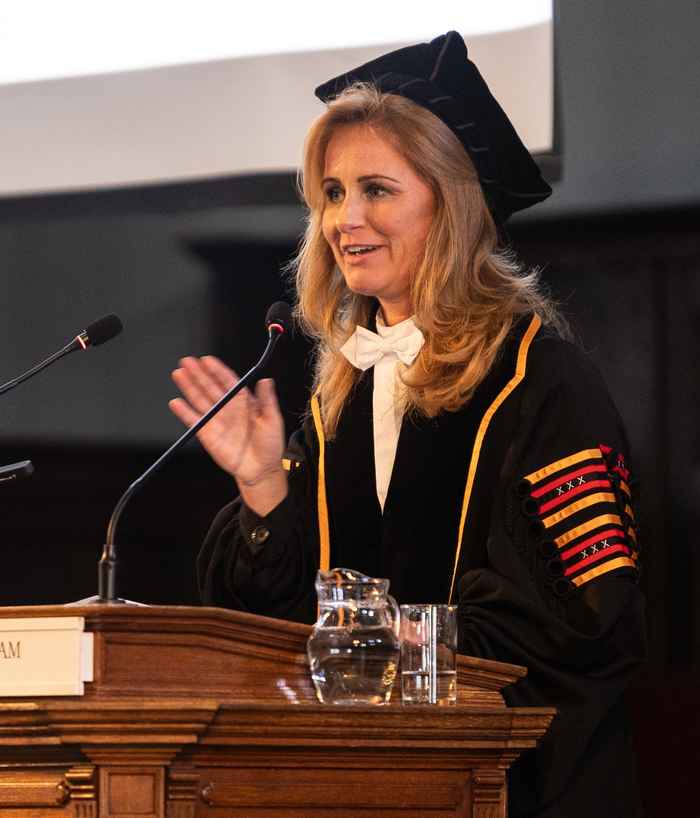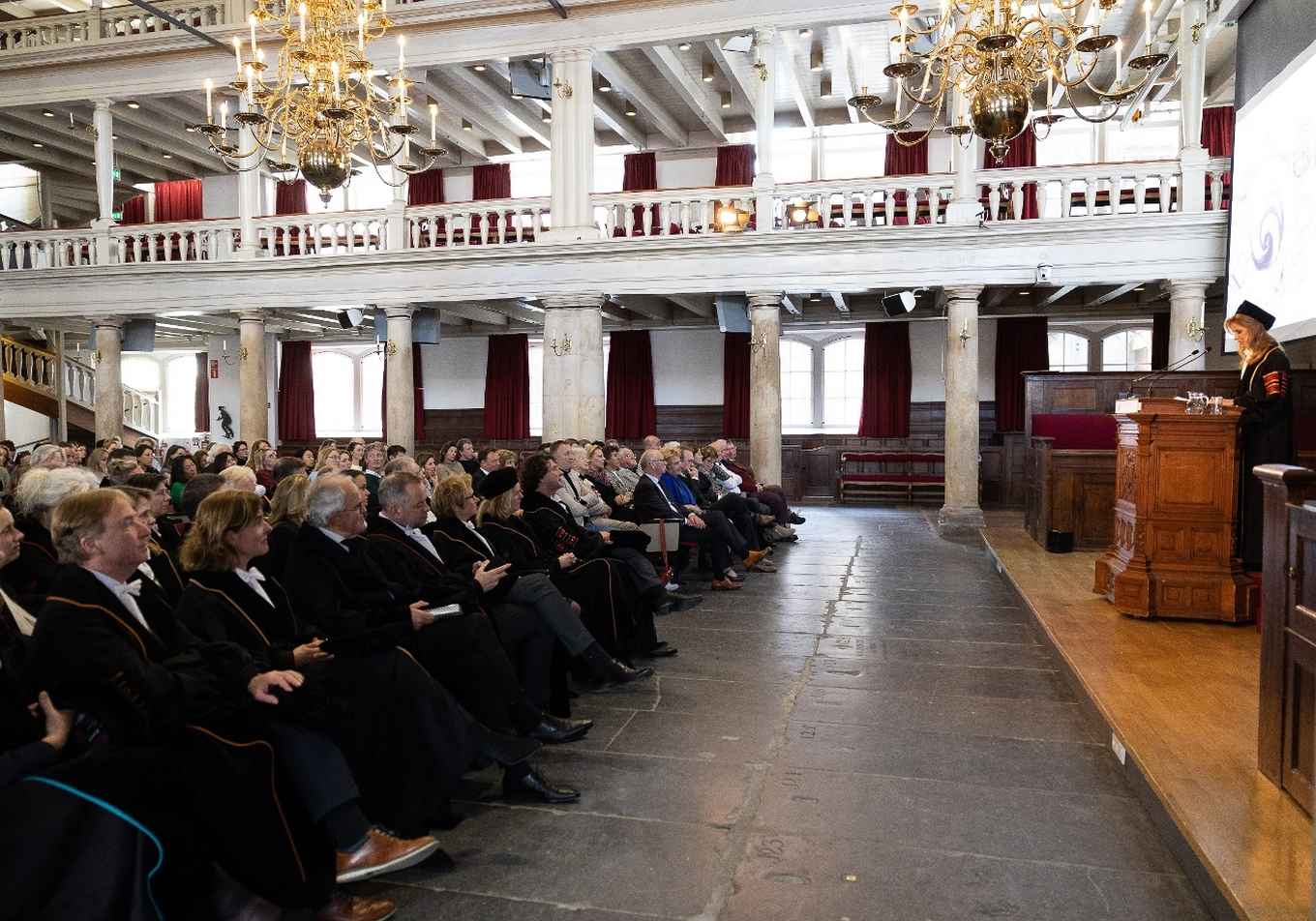Digital persuasion: Navigating turbulent waters
Inaugural lecture prof. dr. Guda van Noort
17 May 2023

In her inaugural lecture prof. dr. Guda van Noort addressed how within the past 40 years, a digital society – in which information, people, devices are constantly connected – has emerged. This digital revolution has fundamentally changed our daily lives, including ours as consumers. While technology develops at a fast pace, she urges everyone to not merely observe these developments, but to think critically, and to actively participate in the debate regarding media technology and digital persuasion. In an attempt to fuel this debate, in her inaugural lecture she reflects on how developments in media technology influence the persuasion process. She focuses on media technology: technology that distributes, stores and creates media content.
In her research, Van Noort focuses on how developments in media technology changes the digital persuasion process, and more particularly the balance in the relationship between consumers and brands. This relationship is ideally balanced: brands constantly apply new techniques and strategies to persuade consumers, and consumers eventually learn about these techniques providing them with persuasion knowledge that enables them to cope with persuasion.
Van Noort argues that the digital revolution was first perceived as a positive emancipating development, empowering consumers in persuasion process. It for example enabled consumers to become active media users and it provided them with access to information on products and prices, making them less dependent on the information provided by brands. However, this positive perspective has been replaced by a more critical view, which is reflected in the social debates on the increasing power of BigTech, privacy issues and the dark sides of algorithms and AI. She endorses this critical perspective based on communication science research, and outlines how the persuasion process became unbalanced due to datafication, algorithmification and machinification.
Van Noort also addressed how this imbalance in the digital persuasion process should be addressed. She argued it cannot be addressed with a quick-fix and that it requires action from all involved parties: Academia, consumers, brands, advertising- and media companies, the platforms they operate on and regulatory, legislative and law-enforcing bodies.
Watch Van Noort’s inaugural lecture back via this link.
